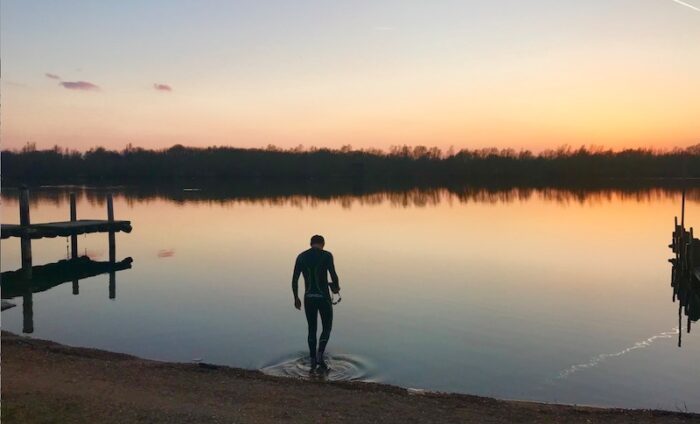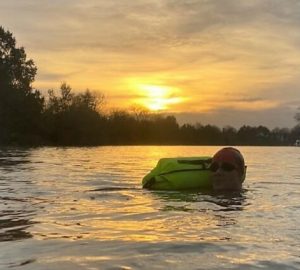
What do we mean by outdoor swimming?
Outdoor swimming, open water swimming, wild swimming… what’s the difference?
Outdoor Swimmer is a magazine for people who love swimming outside, by people who love swimming outside. But what exactly do we mean by outdoor swimming
or the various other phrases we use
to describe what we do? As far as we know, there is no universal agreement on this, so we thought we’d set out what we understand by each of them. Whether you agree or disagree with our classifications, we’d love to
hear what you think. So, here goes:
Outdoor swimming
In our view,
this is the overarching term encompassing
all the others.
It includes
swimming in lidos, especially unheated ones, jumping in the
sea while on holiday and everything listed below.
Openwater swimming
While this term is often used interchangeably with outdoor swimming, we suggest it should be used primarily to describe the more competitive, event-driven side of the sport. It can apply to wetsuit or non- wetsuit swims, but note the differences to marathon swimming. Circuit swimming at regulated venues is open water swimming, as is the first part of a triathlon (unless it’s in an indoor pool!).
Marathon swimming
This is the traditional, hard-core end of outdoor swimming, preferably reserved for swims of 10 miles or more completed without a wetsuit
as either a solo challenge or in a competitive format. Swimming a length of Windermere or crossing the English Channel without a wetsuit is a marathon swim.
Now that FINA and the Olympics have
adopted 10km as the “marathon” swim event, this distance, rather than 10 miles, has become the marathon standard in more recent years, but we prefer the original (especially as FINA rules now allow for wetsuits).
Wild swimming
This is swimming off the beaten track, in pools, tarns, rivers or anywhere
you can submerge yourself in natural water. This is the fun, unregulated side of swimming. Can be done anytime of the year. Perhaps we need to call it “wild winter swimming” in the winter!
Winter swimming/cold water swimming
These terms both refer to swimming outside during winter or when the water is “cold”, which is a somewhat relative term for outdoor swimmers. In this context, we suggest it means water temperatures of less than 10 degrees Celsius, but there’s no hard and fast rule. Winter swimming is usually but not necessarily done without a wetsuit.
Some winter swimming fans like to use neoprene socks, gloves and hats while leaving off the wetsuit. All neoprene
is banned in winter swimming and cold water swimming events, which typically consist of races from around 25m to 1km.
Ice swimming
Closely related to winter and cold water swimming, the term ice swimming is reserved for water temperatures of less than 5 degrees Celsius, and is linked to the “Ice Mile” challenge – swimming a mile in water temperatures of 5 degrees or less.
Ultimately, it’s all just swimming and we don’t really mind what you call it as long as you’re having fun and staying safe. In any case, there is overlap
and lack of consistency between the terms. Editorially, we don’t insist on using one over the other. However,
one question that does come to mind, is what should we call ourselves?
Are we wild swimmers, open water swimmers or outdoor swimmers – or simply swimmers that at various times enjoy the diverse range of swimming experiences available to us?
Image credit: Katia Vastiau
Simon Griffiths is the founder and publisher of Outdoor Swimmer
Email Simon at: simon@outdoorswimmer.com







